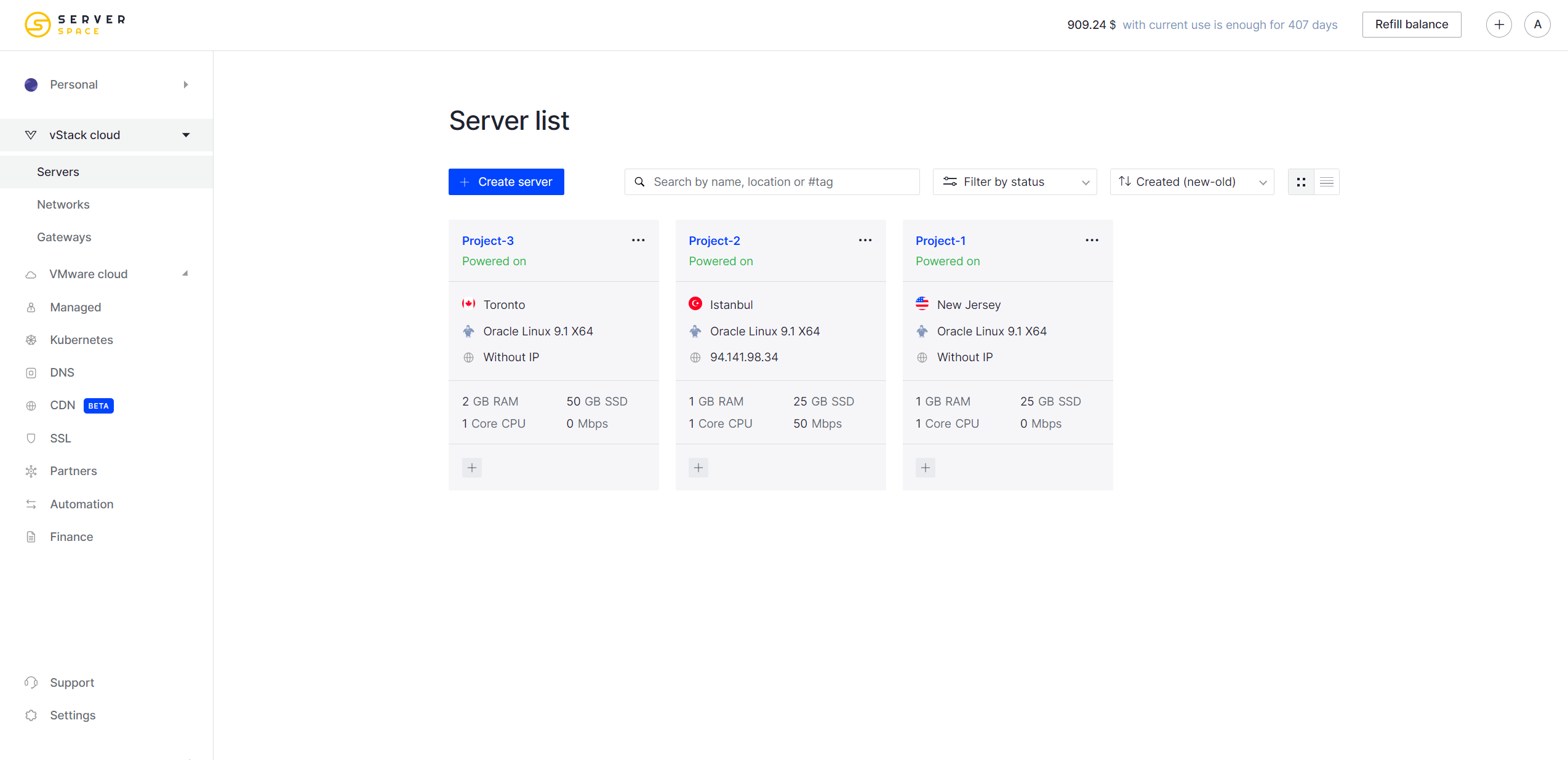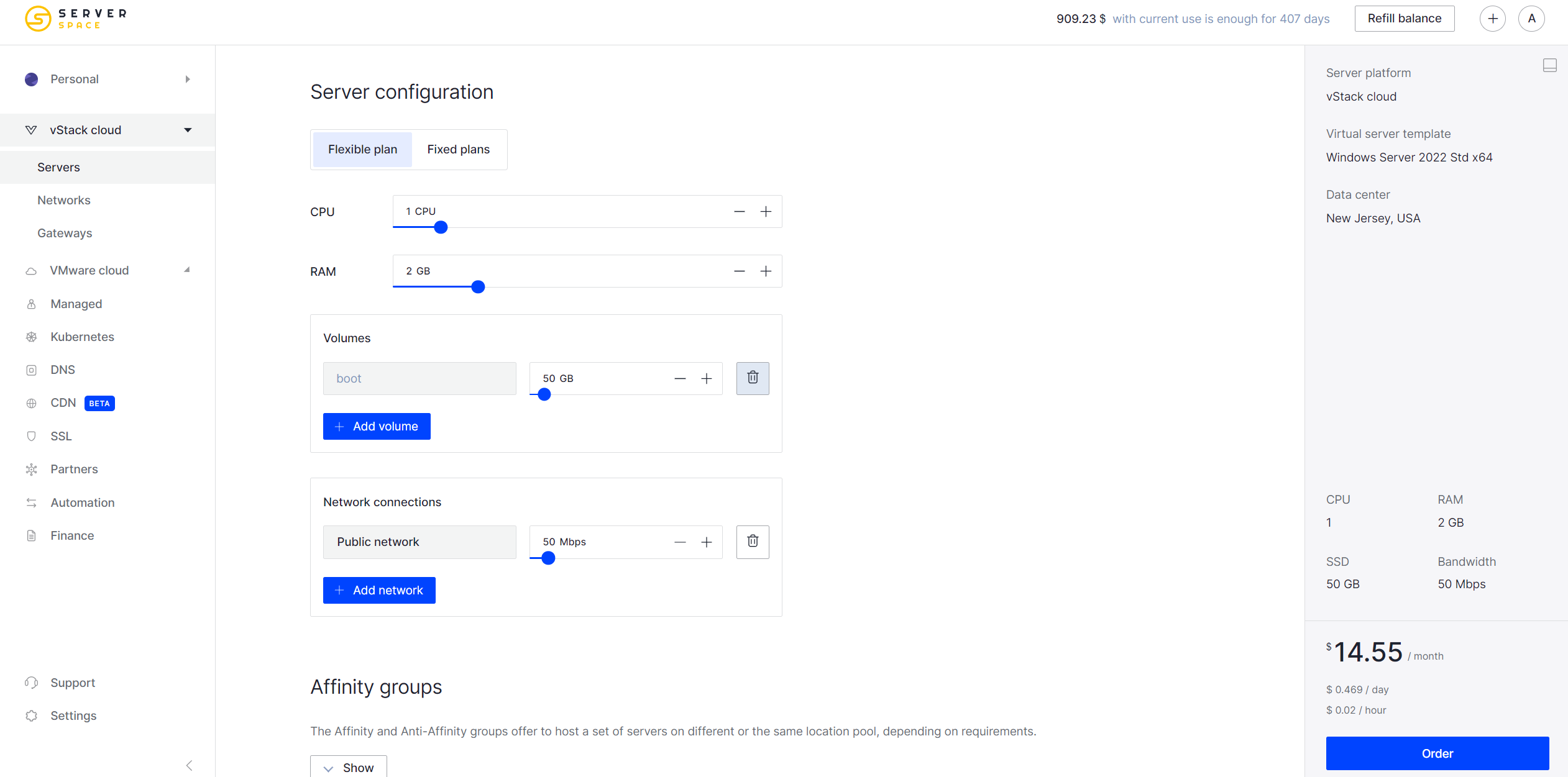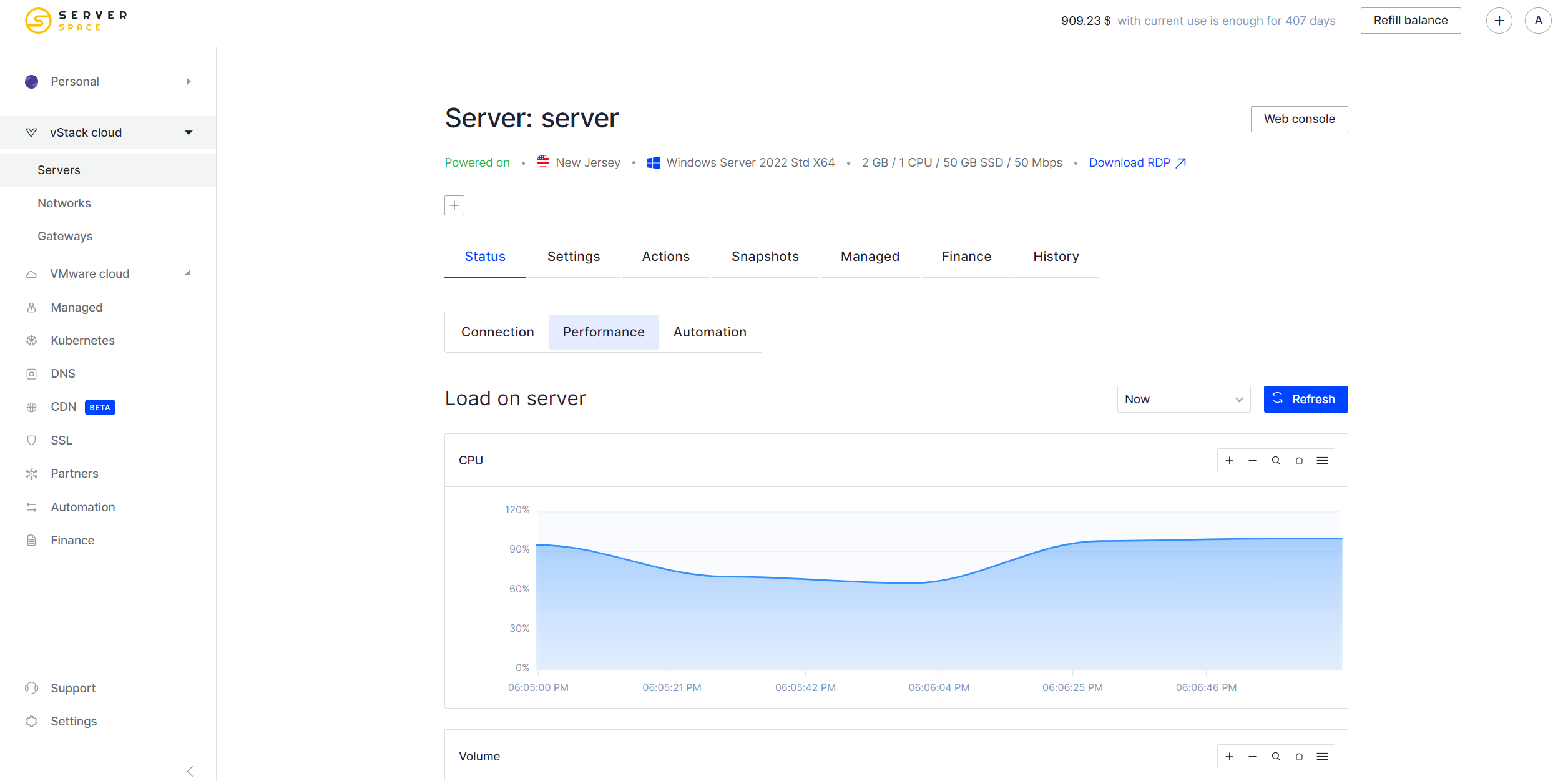
User-friendly interface
Our control panel has the necessary tools to monitor the state of your infrastructure and comfortably manage your application. Any problem is solved within the panel through the ticketing system.
Deploy a server with MySQL - a relational database management system.
You are not tied to rates and can rent any cloud server configuration.
Spin up your MySQL servers in 40 sec, without long setups and boring docs to read.
Service charges every 10 minutes. You pay only for the servers you use.
Run your servers globally. We have low latency and high availability network.
Explore Serverspace opportunities to grow your business.
Our control panel has the necessary tools to monitor the state of your infrastructure and comfortably manage your application. Any problem is solved within the panel through the ticketing system.
Set up MySQL server configuration in the handy Serverspace control panel. If the default configuration does not suit you, you can customize the resources to your own needs.
Estimate costs for a project with Serverspace pricing system. Funds are charged once in every 10 minutes, allowing you to pay for servers only for their lifetime.
Deploy a virtual server with a pre-installed MySQL database management system.
The DBMS is customizable for individual needs and site specifics. It allows you to work with different amounts of data. You can install additional plugins to simplify your experience with the DBMS.
MySQL server processes queries of any difficulty in seconds, regardless of the complexity of the relations between the data and their number.
A high level of data protection is provided by built-in security features based on Access Control Lists (ACLs) for all connections, queries, and other operations that users can attempt to perform. SSL-encrypted connections between MySQL clients and servers is also supported.
MySQL is a widely-used open-source relational database management system (RDBMS) that stores and organizes data in structured tables. It works by allowing applications to communicate with the database through queries written in SQL (Structured Query Language). When a query is received, MySQL processes it and returns the requested data or performs the specified action, such as inserting, updating, or deleting records. Its reliability, speed, and ease of use make it a popular choice for powering websites, applications, and data-driven services.
Read more about MySQL in our Instructions.
The process of installing MySQL on Debian 10 (or other Linux-based distribution) can be found in our tutorial.
Key features of MySQL include:
MySQL is one of the most popular open-source relational database management systems, widely used across various industries and applications due to its reliability, scalability, and ease of use. It serves as the backbone for storing, managing, and retrieving structured data in many environments. Common use cases for MySQL include:

